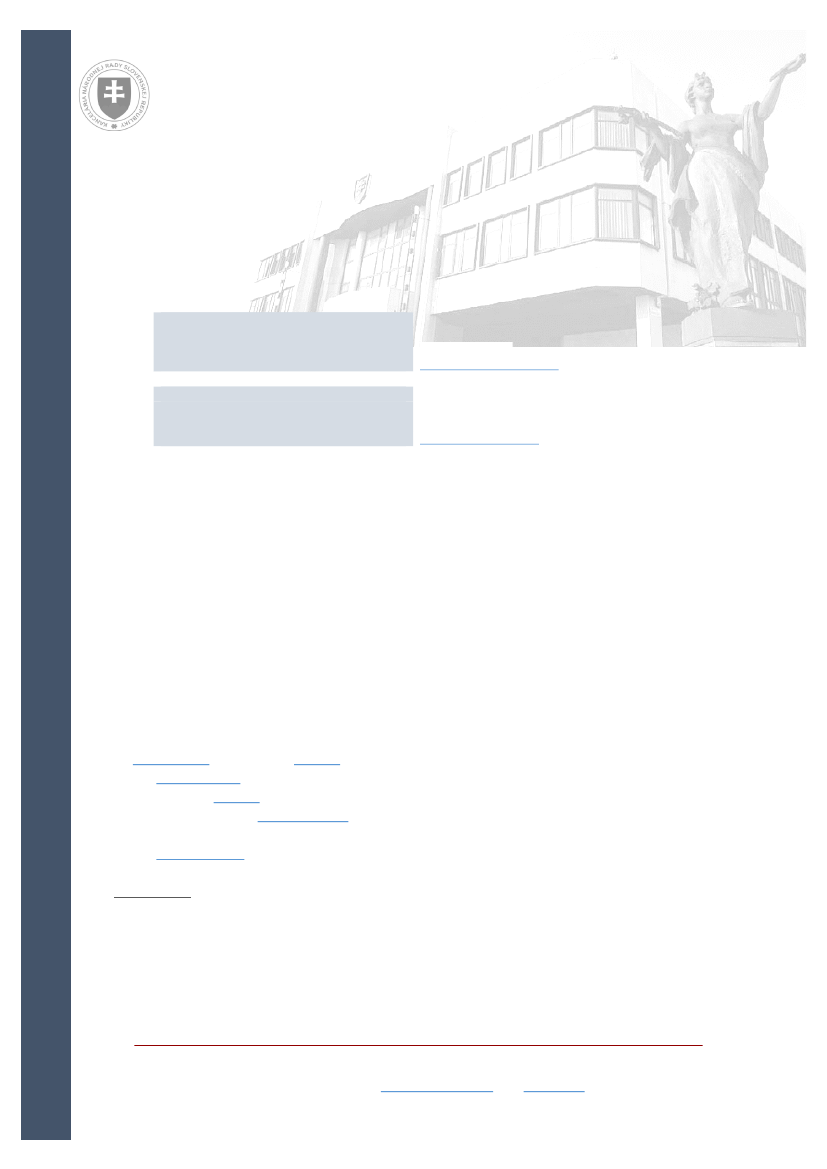
CHANCELLERY OF THE NATIONAL COUNCIL OF THE SLOVAK REPUBLIC
PARLIAMENTARY INSTITUTE
ECPRD request no. 6116
The offering of a financial advantage in exchange for the resignation of a seat in
parliament
21 July 2025
Country
Parliament
ECPRD Correspondent
E-mail address
Elaborated by
Job title
Department
E-mail address
Slovak Republic
National Council of the Slovak Republic
Helena Latáková
Peter Plenta
state advisor (research analyst)
Parliamentary Institute
Introduction
The Slovak Parliament still has not adopted a code of ethics that would define the expected
standards of behaviour. Nevertheless, a financial offer for the resignation of a seat would
undoubtedly damage the reputation of the individual MP as well as the political party involved.
Thus, it is hard to imagine that such an offer would be made
–
and that the public would become
aware of it.
1) Is there any legislation or other form of regulation, such as a code of conduct, that
prohibits
a) a Member of Parliament from accepting a financial advantage on the condition that they
resign their seat;
b) the act of offering such a proposal, including by individuals from the member’s own party.
There are several legislation acts that could/should prevent such behaviour of MPs and other
persons, most notably:
➢
Constitution
(available in
English,
though not necessary up-to date)
➢
Act
No. 350/1996
Coll. on Rules of Procedure of the National Council of the Slovak Republic
(available in
English,
though not necessary up to date)
➢
Constitutional Act
No. 357/2004
Coll. on the Protection of the Public Interest in the
Performance of the Duties of Public Officials
➢
Act
No. 300/2000
Coll. Criminal code
Constitution
Article 75
(1) A Member of Parliament is sworn in at the first meeting of the National Council of the Slovak
Republic in which he participates, by taking the following oath:
"I swear on
my honour and conscience
to be faithful to the Slovak Republic.
I will discharge my
duties in the interest of its citizens. I will uphold the Constitution and other laws
and work
toward their implementation into life."
NÁMESTIE
ALEXANDRA DUBČEKA 1, 812 80 BRATISLAVA, SLOVAK REPUBLIC
tel.: +421 2 5972 28 56; e-mail:
web:
www.nrsr.sk